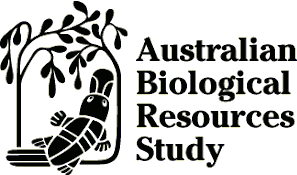Australian Tropical Rainforest Plants - Online edition
Salacia chinensis L.
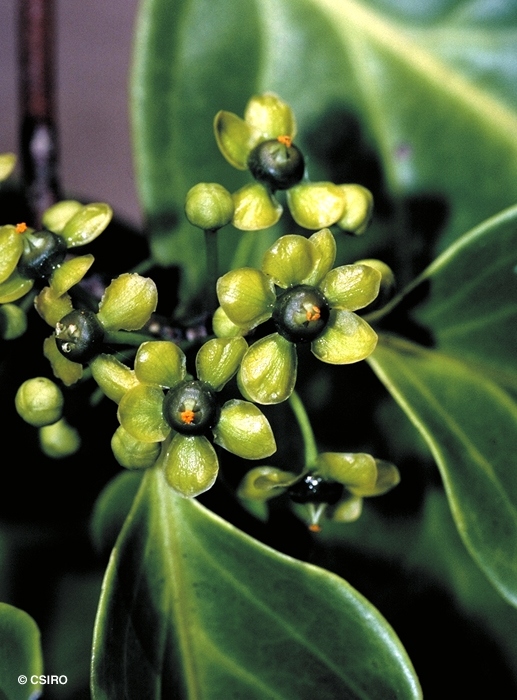
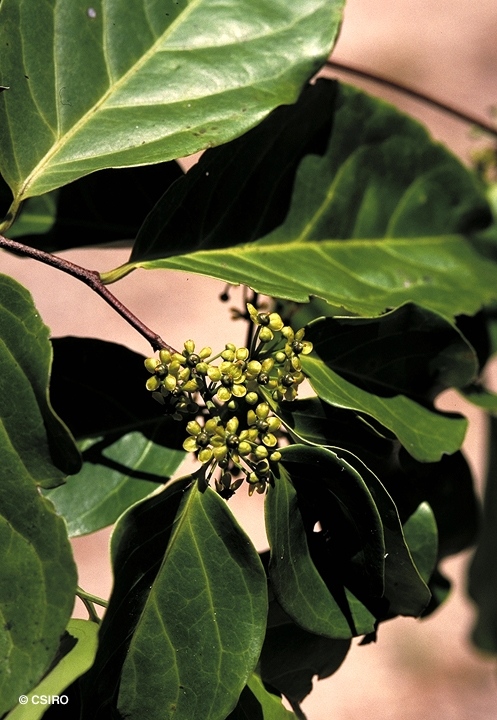
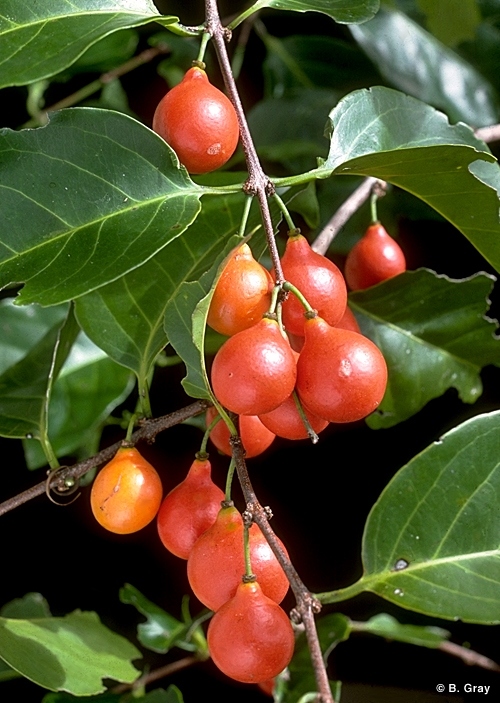
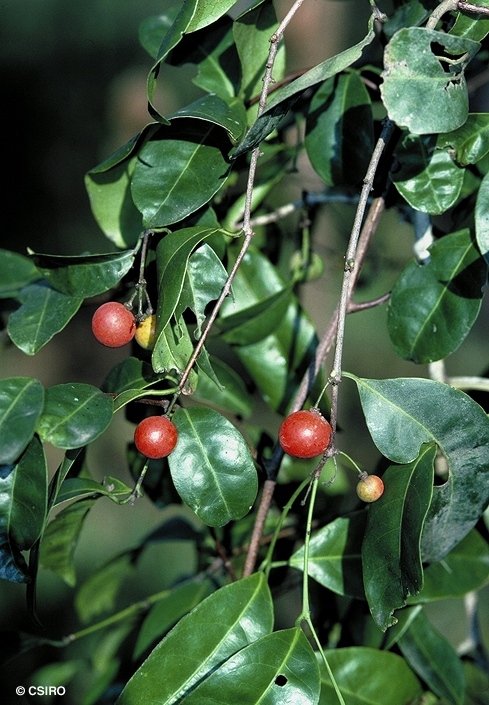
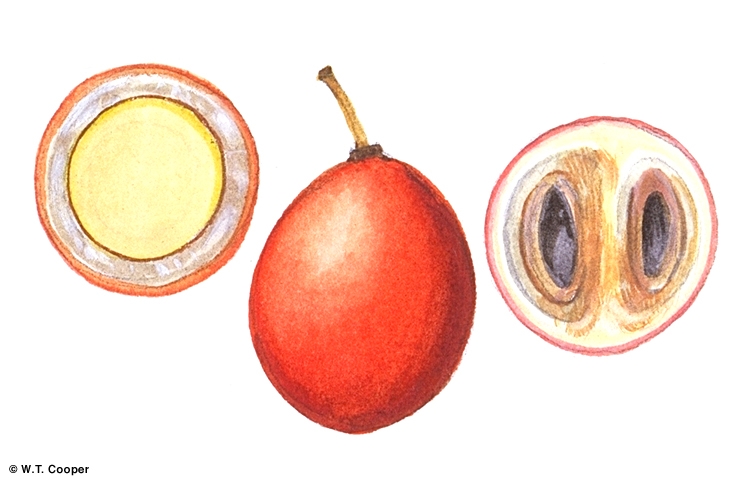
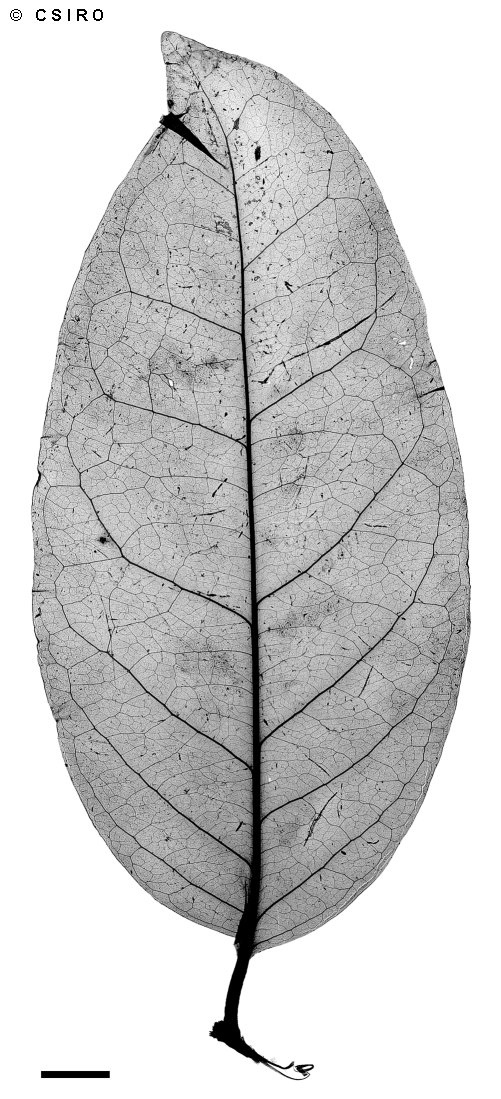
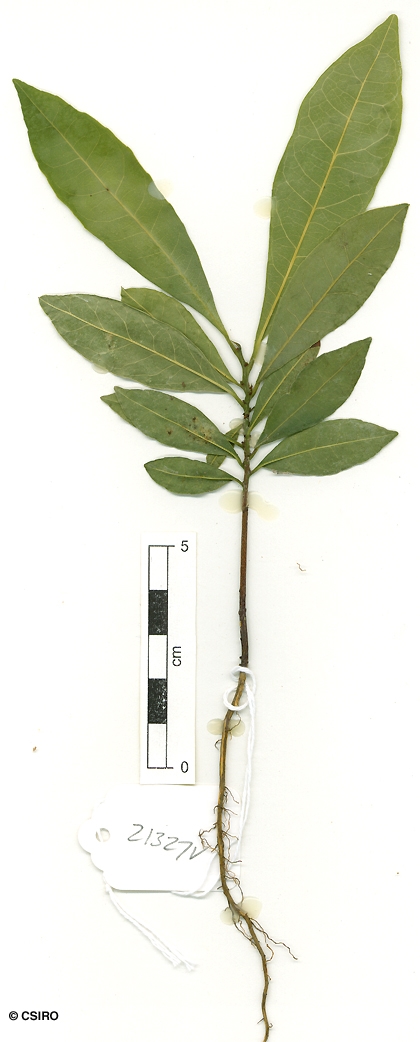
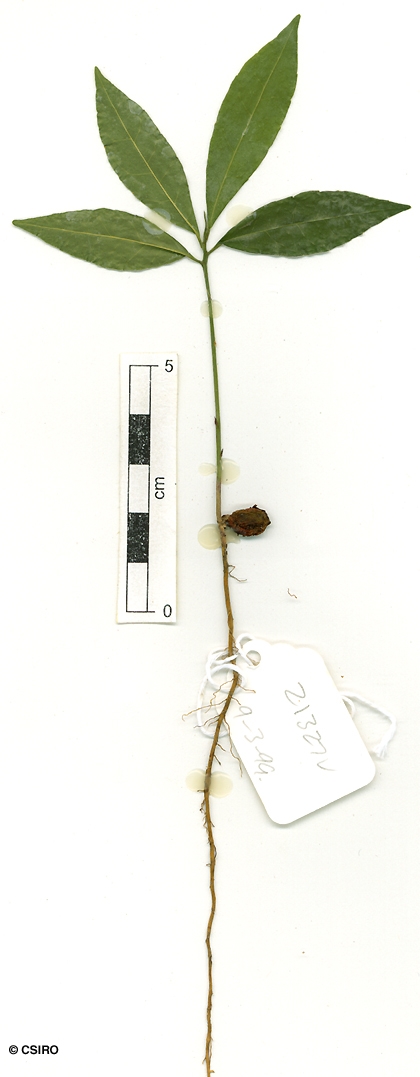
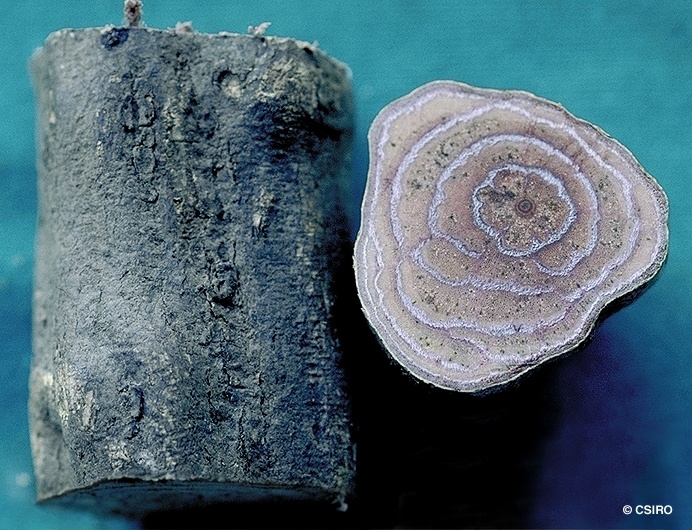
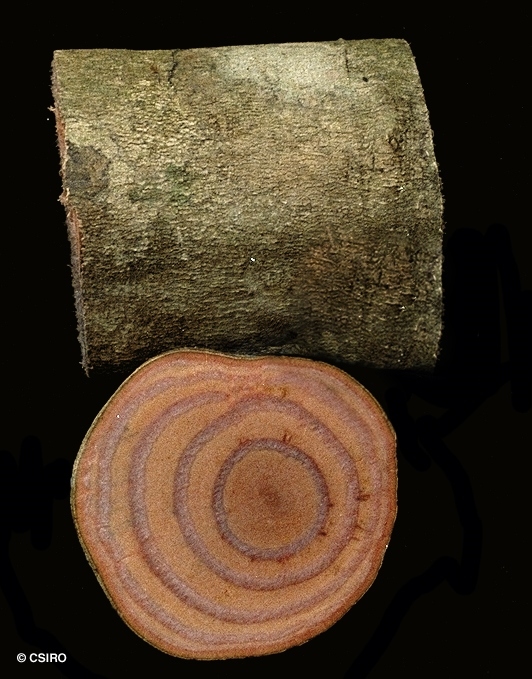
Linnaeus, C. von (1771) Mantissa Plantarum : 293. Type: Habitat in China.
Chinese Salacia; Vine, Lolly; Lolly Vine; Lolly Berry; Salacia, Chinese
Leaf blades about 4-20 x 1.5-12 cm, mostly opposite but sometimes subopposite. Petioles about 0.5-1.5 cm long, grooved on the upper surface. Stipules very small and inconspicuous, about 0.5 mm long. Lateral veins curving but not forming distinct loops inside the blade margin. Branches modified to form tendrils.
Flowers emit a strong unpleasant odour. Flowers about 6 mm diam. Pedicels about 5-12 mm long. Calyx lobes about 0.5-0.7 mm long. Petals glabrous, distinctly imbricate, about 2-4.5 mm long. Staminal filaments +/- strap-like, broadest at the base and tapering to the apex. Stamens attached inside the disk. Ovary immersed in a fleshy disk. Stigma cone-shaped. Ovules 2 per locule.
Fruits red when ripe, subglobose to ellipsoid, about 13-23 mm diam. Seed solitary, globose, about 10-15 mm diam. Cotyledons completely fused together, radicle very small, visible on the outer surface of the embryo.
Usually about 3-6 cataphylls produced before the first true leaves. Stipules small and inconspicuous, about 0.5 mm long, deciduous. The second, third and fourth leaves produced usually have toothed margins but subsequent leaves have entire margins. Roots orange coloured. At the tenth leaf stage: leaf blade narrowly obovate-elliptic, apex acuminate and bluntly pointed, base attenuate. Margin with about 20 evenly distributed teeth. Midrib raised on the upper surface. Stems with pairs of ribs running from one leaf node to the one below. Stipules about 0.7 mm long, margins laciniate. Some roots orange-coloured. Seed germination time 36 to 105 days.
Food plant for the larval stages of the Australian Plane Butterfly. Common & Waterhouse (1981).




